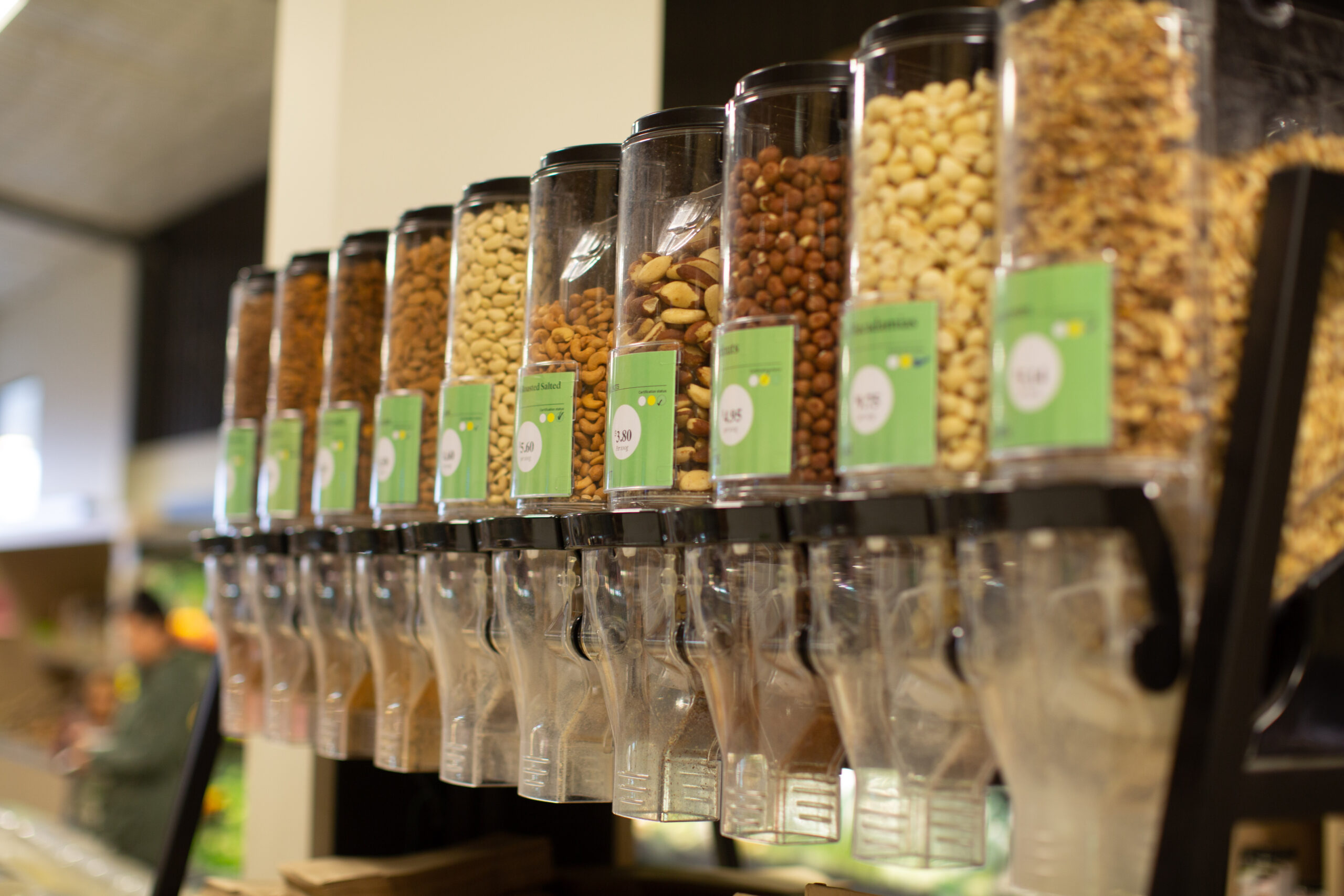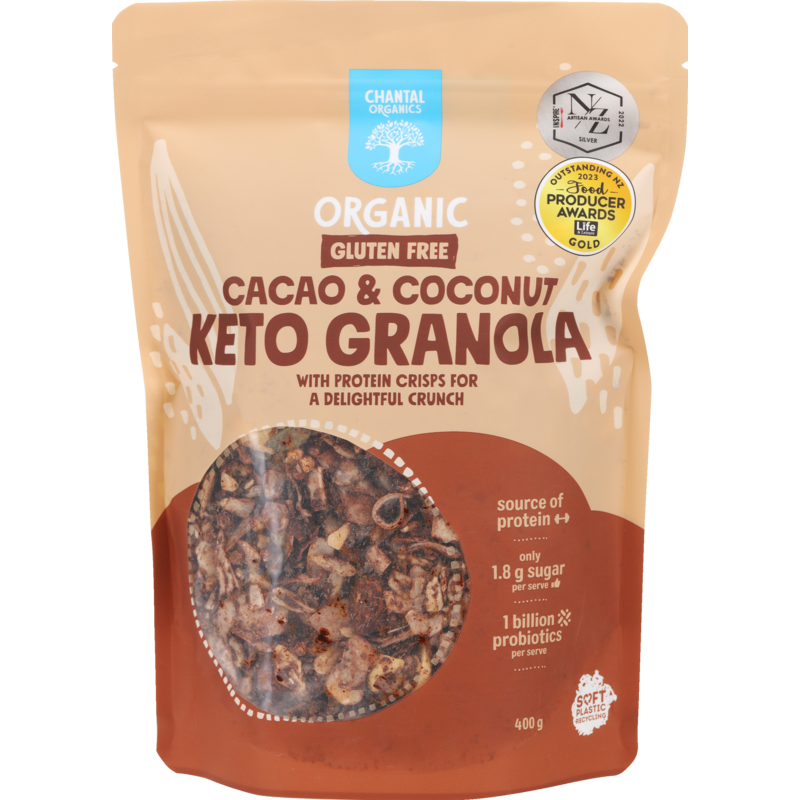
Grocery shopping is a great opportunity to reduce single-use plastic. Find a variety of ideas and easy practices to extend your sustainability journey.
Sustainable shopping is a journey, so your efforts don’t need to be perfect to get started or make an impact. This blog explores ideas and small steps to avoid single-use plastic and to provide you with the inspiration to take the next step. Whether you shop at the supermarket, local shop, or health food store, here are some simple ways to reduce your single-use plastic.
1. Plan Ahead. Start with a quick stock take of your pantry, so you don’t buy what you don’t need. Review recipes you plan to make and write a shopping list. Plan your shopping route, what stores do you need to visit and how often each month.
2. Create a plastic free shopping kit. Fill a reusable shopping bag with empty jars, bottles, containers and repurposed bags. Simply use what you have. Keep it handy or in the car and you’re more likely to use it. Simply reuse what you have, i.e. take away containers for the deli or meat counter. Hot tip: Add a black marker to your kit, to write on the container what is inside, add a bulk bin number or cross out an old barcode.

3. Visit bulk food stores. Keep a shopping list and visit your local bulk food store once a month to stock up on items such as oats, flours, nuts and granola. Remember to bring your pre-packed shopping kit. Each store will have their own system, but it’s likely any container used, will need to be weighed before filled, so you’re only paying for the product, not the weight of the container. Staff are happy to help.
4. Rethink your habits. If your aim is to support climate action, consider the resources that are used to manufacture packaging. For example, using a new paper bag is considered waste-free, as it can be recycled. However that bag still requires resources to be made, transported and recycled. Using a new plastic bag at the bulk bin section each time still creates single-use plastic. Every time a bag is reused, it saves valuable resources.
Washing and reusing resealable pouches, such as Chantal Organics’ resealable granola bags (before dropping them off with the soft plastics recycling scheme) is an easy and effective way to be part of a circular economy.
5. Avoid food waste. Reducing food waste is an easy action households can take to limit climate change. When shopping from bulk bins, you can buy as little or as much as you need. This keeps your stock fresh and avoids unused food from going stale, as well as reducing single-use plastic.
Hot tip: Join Love Food, Hate Waste New Zealand, for practical and achievable ways to reduce food waste.

6. Expand your scope. Buying bulk liquids is a great next step. Wash and reuse containers you already have to refill with oil, tamari soy sauce or apple cider vinegar. Check your local Bin Inn or refillery store for availability. Many of these stores also have an ecostore Refill Stations for bulk body care, kitchen wash and home cleaning products. Simply rinse out your old bottle, let it dry and take it to your nearest Refill Station. (Don’t forget to bring the cap!)
7. Supermarket Hacks: At the deli and meat counters, ask for the product to go straight into your own container. Bread bags are great for being reused here. Invest in reusable produce bags and keep them in your shopping bags. Reuse plastic bags at the bulk bins. Drop off your soft plastic recycling at participating stores.
8. Stretch your food dollar. Buying in bulk can be more economical. You can buy only what you need, and prices can be lower without the packaging. Keep an eye on prices, they are often listed per 100g. Pantry staples tend to be cheaper in bulk bins, such as oats, rice, beans and flour. Buying organic ingredients in bulk is a smart way to make organics affordable.
Pick up a few new shopping habits to support your sustainability journey. Get inspired to reduce the amount of single-use plastic in your trolley and start with one of the tips above.
“We don’t need a handful of people doing zero waste perfectly. We need millions of people doing it imperfectly.”
– Anne-Marie Bonneau, Zero Waste Chef
PRODUCTS MENTIONED




